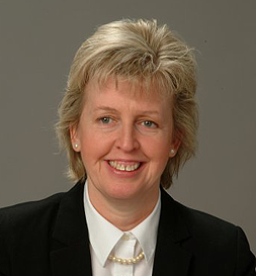The U.S. Supreme Court has unanimously held that a state community college employee’s truthful sworn testimony in a criminal trial was protected by the First Amendment. Lane v. Franks, No. 13-483 (June 19, 2014). However, the Court also unanimously held that the former college president who terminated the employee’s employment was entitled to qualified immunity with respect to the First Amendment retaliation claims brought against him in his individual capacity. Finally, the Court remanded the case to the lower court as to the official capacity claims for First Amendment retaliation against the current college president.
Background
Central Alabama Community College (CACC) hired Edward Lane as the probationary Director of Community Intensive Training for Youth (CITY), a program for underprivileged youth. At that time, CITY was facing financial difficulties, so Lane conducted an audit of CITY’s finances. He discovered that then-state representative Suzanne Schmitz was listed on CITY’s payroll, but was not reporting for work. Lane terminated Schmitz’s employment on October 19, 2006.
An FBI investigation of Schmitz followed, resulting in criminal charges being brought against her. Lane was subpoenaed to testify in the criminal proceedings. He testified in November 2006 (before a federal grand jury) and August 2008 (at trial). Lane’s testimony described the events that led to his termination of Schmitz’s employment.
In November 2008, Lane began reporting to Steve Franks, who was hired as President of CACC in January 2008 after an 11-year career in Arkansas. Lane recommended to Franks that he consider layoffs to address CITY’s financial difficulties. In January 2009, Franks decided to terminate 29 probationary CITY employees, including Lane. Franks then rescinded all but two of the 29 terminations. Lane was one of the two. In September 2009, CACC closed down the CITY program, terminating the remaining CITY employees. Franks retired, and Susan Burrow took his place as the current Acting President of CACC.
The Suit and Lower Court Decisions
Lane sued Franks in his individual and official capacities under the Civil Rights Act of 1871, 42 U.S.C. section 1983, in January 2011, alleging Franks had fired him in retaliation for his testimony against Schmitz in violation of the First Amendment. Section 1983 allows suits against state actors who, under color of state law, deprive citizens of their federal constitution or statutory rights.
The district court, relying on precedent of the U.S. Court of Appeals for the Eleventh Circuit, granted Franks’s motion for summary judgment, holding that Lane’s speech was not protected by the First Amendment and that, in any event, Franks would be entitled to qualified immunity even if that were not the case.
On appeal, the Eleventh Circuit affirmed, finding, among other things, that Lane’s testimony touched only on acts he performed as part of his official duties as CITY’s probationary director, and therefore was unprotected. Lane’s petition for review by the U.S. Supreme Court followed. The Supreme Court granted certiorari “to resolve discord among the Courts of Appeals as to whether public employees may be fired — or suffer other adverse employment consequences — for providing truthful subpoenaed testimony outside the course of their ordinary job responsibilities.”
First Amendment Protected Speech
The Supreme Court began by explaining the seminal Pickering balancing test governing public employee speech. The Court described it as the balance “between the interests of the [employee], as a citizen, in commenting upon matters of public concern and the interest of the State, as an employer, in promoting the efficiency of the public services it performs through its employees.” Pickering v. Board of Educ., 391 U.S. 563, 568 (1968).
In Garcetti v. Ceballos, 547 U.S. 410 (2006), the Court described a two-step inquiry into whether a public employee’s speech is entitled to protection. The first step under Garcetti was for the Court to determine whether Lane spoke as a citizen or as a government employee. If a public employee speaks “pursuant to [his] official duties,” the Court said, he is not speaking as a citizen for purposes of the First Amendment, and his speech is therefore not insulated from discipline by his employer.
The Court held that Lane’s sworn testimony constituted citizen speech on a matter of public concern — indeed, it was “a quintessential example of speech as a citizen for a simple reason: Anyone who testifies in court bears an obligation, to the court and to the society at large, to tell the truth.”
The Court held the Eleventh Circuit read Garcetti too broadly, and that simply learning of the subject matter of the testimony in the course of government employment does not require the testimony be treated as employee speech rather than citizen speech. Otherwise, the Court explained, a government employee would find himself “torn between the obligation to testify truthfully and the desire to avoid retaliation and keep [his] job.”
The Court then held that Lane’s testimony concerned corruption in a public program and misuse of state funds, and thus clearly involved a matter of public concern.
Because Lane’s testimony was citizen speech on a matter of public concern, the Court then engaged in Pickering balancing. It held that there was no government interest tipping the scale in the employer’s favor and concluded that Lane’s speech was protected under the First Amendment.
Qualified Immunity
However, the Court also unanimously concluded former CACC President Franks was entitled to qualified immunity as to the First Amendment retaliation claims brought against him in his individual capacity.
The Court held that Eleventh Circuit precedent did not preclude Franks from reasonably believing, at the time he fired Lane, that a government employer could fire an employee based on the employee’s sworn testimony, given outside the scope of his ordinary job responsibilities. Indeed, Eleventh Circuit decisions supported Franks’s position, and, to the extent that there was any ambiguity in Eleventh Circuit precedent at all, the Court said it “only highlights the dispositive point: At the time of Lane’s termination, Eleventh Circuit precedent did not provide clear notice that subpoenaed testimony concerning information acquired through public employment is speech of a citizen entitled to First Amendment protection.” The Court observed that decisions of other circuits were in direct conflict with Eleventh Circuit precedent.
Therefore, because the question was not “beyond debate” at the time Franks terminated Lane’s employment, Franks was entitled to qualified immunity. The Court affirmed the Eleventh Circuit’s judgment as to those claims.
Official Capacity Claims Against Burrow
The Court reversed the Eleventh Circuit’s judgment as to the First Amendment retaliation claims against Burrow in her official capacity as the current Acting President of CACC. It remanded those claims for further proceedings, including consideration of Burrow’s sovereign immunity defense.
For government employers, this decision clarifies an unsettled area of law. The circuit courts were in disagreement as to the reach of Garcetti and what actually constituted speaking “pursuant to one’s duties.” This opinion makes clear that speech “merely concerning information related to or learned through public employment” does not satisfy that test — it does not transform citizen speech into employee speech. The Court’s clarification of Garcetti will be easier for the lower courts to apply: “The critical question under Garcetti is whether the speech at issue is itself ordinarily within the scope of an employee’s duties, not whether it merely concerns those duties.”
Justice Clarence Thomas wrote a concurring opinion in which Justices Antonin Scalia and Samuel A. Alito joined. He emphasized that the Court leaves for another day the question whether a public employee is speaking as a citizen when testifying “in the course of his ordinary responsibilities,” such as “police officers, crime scene technicians, and laboratory analysts,” or those called to testify as the designated representatives of their employers under Fed. R. Civ. P. 30(b)(6).
More broadly, the decision also reinforces the vitality of qualified immunity doctrine, which requires a question to be “beyond debate” at the time of the action before qualified immunity may be denied. Accordingly, both intracircuit and intercircuit splits should be considered seriously in evaluating the applicability of qualified immunity in a particular case.




 i
i

